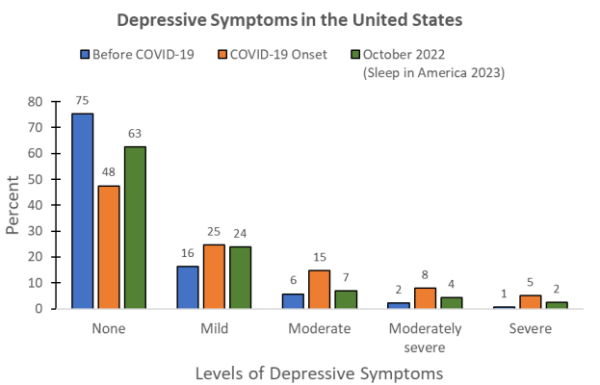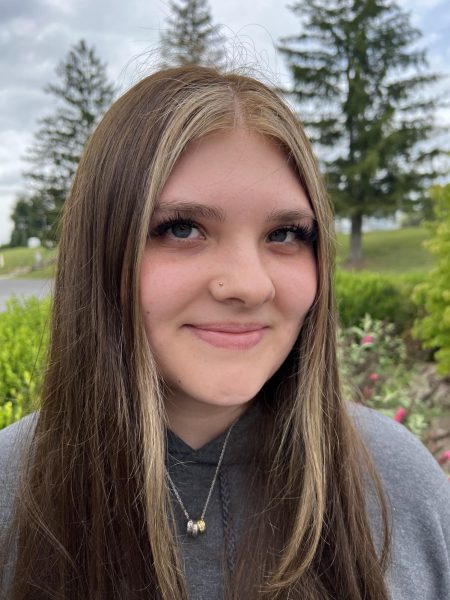
One thing about humans is that we all sleep; therefore, it’s vital to have sleep awareness.
March 10-16th is sleep awareness week, and the National Sleep Foundation (NSF) takes this time to reemphasize that the connection between health and sleep is 100% real: the nation’s sleep health is strongly associated with the nation’s mental health (George Washington Medical Faculty Associates). How your mental state is currently is how you will sleep. As a result, if your brain is foggy you will simply sleep foggy.
The NFS surveys American adults to find out the nation’s sleep health, and results indicate that many American adults are not enjoying their rest at night. Almost 7 in 10 Americans (65%) who are dissatisfied with their sleep also experience mild or greater levels of depressive symptoms, as illustrated in the NSF figure provided.
As illustrated in the figure, October 2022 levels of depressive symptoms are lower than levels recorded at the onset of the COVID-19 pandemic, with the notable exception of mild levels of depressive symptoms being roughly equal to levels observed at the start of the pandemic, but higher than pre-pandemic levels, which is of continued concern. According to the NSF “People with difficulties falling or staying asleep just 2 nights a week have higher levels of depressive symptoms than those without sleep difficulties. 50% of all adults who sleep less than that recommendation also experience mild or greater levels of depression.”
If you are having trouble sleeping it is most likely that depression and or anxiety is affecting your nightly rest. Talk to your doctor if you think there is a bigger problem. Once again, if you have a clouded brain your rest will not be satisfying. The NSF states that “Healthy sleep starts before you hit the sheets,” and also notes that following a sleep schedule as well as going to bed and waking up at the same time every day of the week helps your ability to fall asleep when you want to. Therefore, a regular schedule helps to sync your circadian rhythm, which dictates when you feel sleepy or awake. Turn out the lights. Get comfortable. Then (SNF’s last tip): TURN OFF THE SCREENS! There’s a good reason why your brain still feels wide awake when you’re scrolling at 2 AM. Electronic devices emit blue light and prevent the natural production of melatonin—the chemical that tells your brain that it’s time to sleep. Simply turn them off and stop using them for at least an hour before you go to bed.












